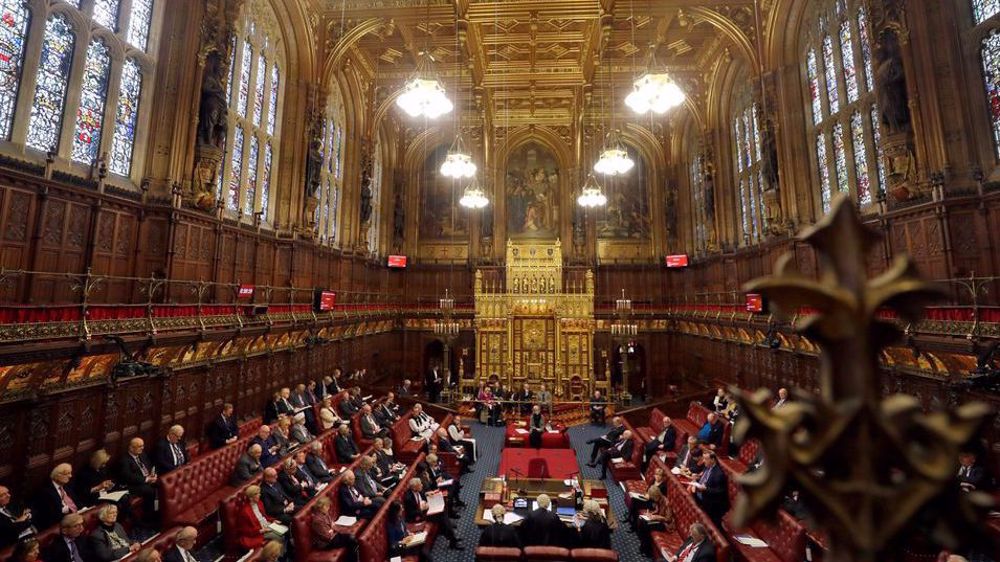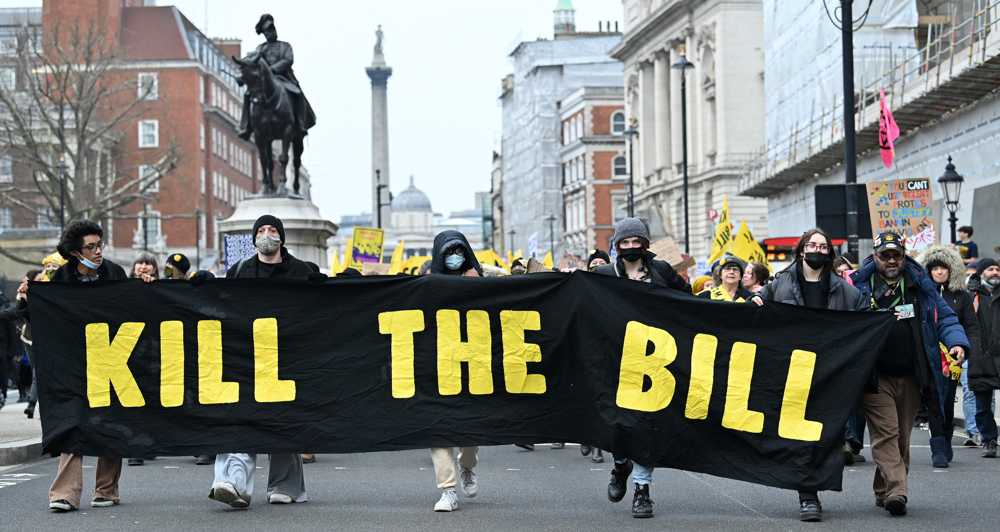UK lawmakers vote against government plan to suppress protests
The House of Lords has voted against a government bill to clamp down on protesters and amended the bill to make misogyny a hate crime in the UK.
Opposition peers in the upper chamber on Monday night rejected a range of measures in the Police, Crime, Sentencing and Courts Bill, with Labour party terming the government’s plans as “outrageous”.
The bill will now go back to the House of Commons to go under changes by the MPs. It cannot become law until both Houses have agreed the changes.
The PCSC bill consists of several major proposed changes to crime and justice in England and Wales. The most controversial part of the bill was the government’s proposition to suppress protests if they are deemed to be too noisy and disruptive.
Green peer Baroness Jones depicted the government's plans as “oppressive” and “plain nasty”.
“How do you seriously think a protest is going to happen without noise?” she asked.
Another measure, rejected by the upper chamber, was granting the power to police officers to stop and search people in an attempt to prevent them taking part in protests.
Labour Party’s Lord Hain called the move “the biggest threat to the right to dissent and the right to protest in my lifetime,” adding that it would have “throttled” the voice of the protesters.
In another government defeat, lawmakers also voted to make misogyny a hate crime in England and Wales, enabling judges to impose stronger penalties if prejudice against women is proved to be the motivation.
Earlier in October, Prime Minister Boris Johnson opposed the idea that misogyny should be a hate crime, saying: “If you simply widen the scope of what you ask the police to do, you’ll just increase the problem.”
Justice Secretary Dominic Raab also rejected the proposal while seeming to be confused about the meaning of misogyny, suggesting it could be applied to the abuse of women or men.
The move to amend the bill to make misogyny a hate crime was led by Conservative peer Lady Newlove, a former victims’ commissioner.
“It is perverse that, despite 3 million crimes being committed against women in just three years, our legal and policing systems do not routinely recognize what we all know is blindingly obvious: the deep-rooted hostility towards women that motivates many of these crimes,” Newlove said.
In spite of all these, according to Home Office Minister Lady Williams, a report by the Law Commission last year proves that making misogyny a hate crime would not prevent hostility towards women in the UK.
Israel indicts two settlers over suspected spying for Hezbollah
Iran: US airstrikes on Yemen war crimes, violation of international law
Yemeni armed forces down F-18 fighter jet, repel US-UK attack: Spokesman
Iran warns against US-Israeli plot to weaken Muslims, dominate region
VIDEO | Public uproar in US against Israeli regime
‘Ghost town’: 70% of Jabalia buildings destroyed by Israel
Mother’s Day: Sareh Javanmardi’s inspiring journey as Paralympic champion and mother
Russia downs over 40 Ukrainian drones as Putin vows 'destruction' on Kiev











 This makes it easy to access the Press TV website
This makes it easy to access the Press TV website